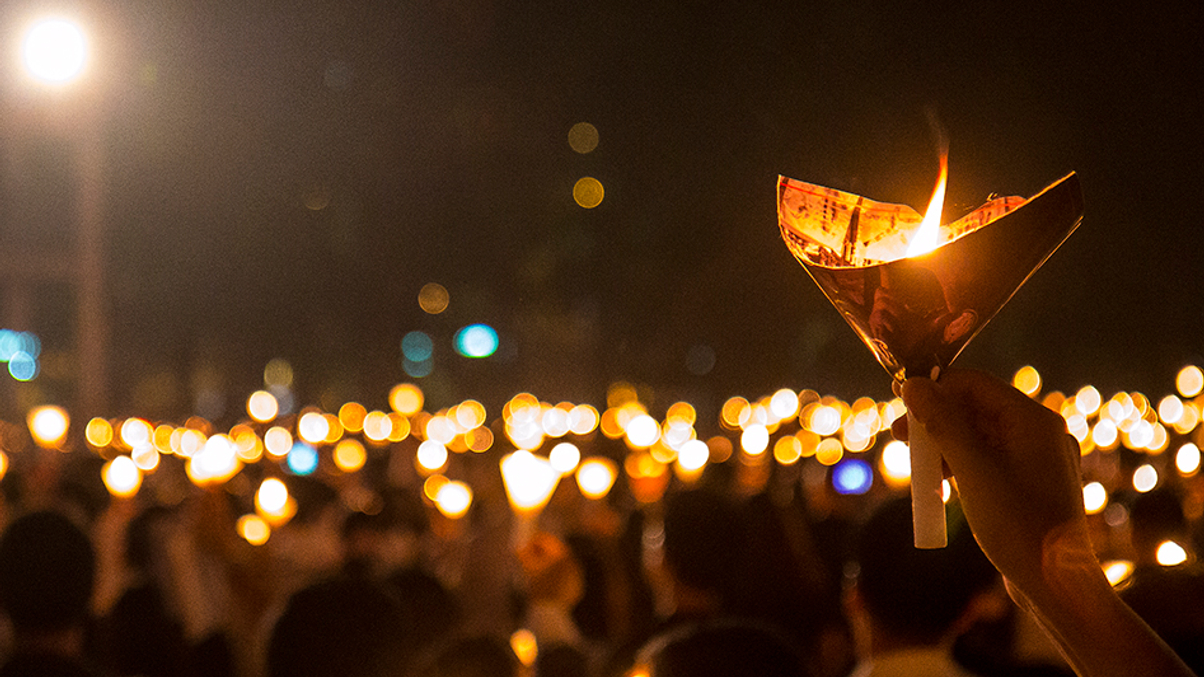HK marks Tiananmen Square anniversary
Tens of thousands of people gathered in the city's Victoria Park to commemorate the events of June 4, 1989, when Beijing suppressed student-led protests.

A crowd estimated at 100,000 or more congregated in Hong Kong’s Victoria Park last night to commemorate the 25th anniversary of the Tiananmen Square crackdown.
Sign in to read on!
Registered users get 2 free articles in 30 days.
Subscribers have full unlimited access to AsianInvestor
Not signed up? New users get 2 free articles per month, plus a 7-day unlimited free trial.
¬ Haymarket Media Limited. All rights reserved.


